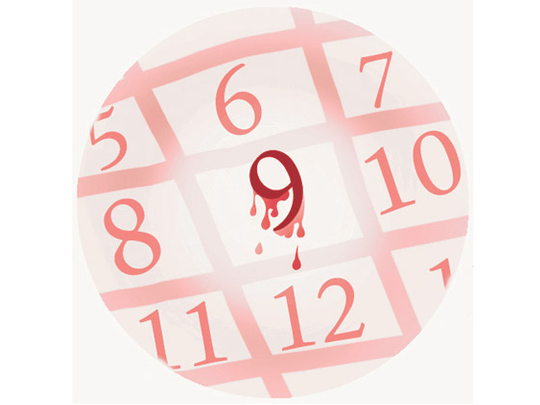
Saturday marked the eighth anniversary of the US-led coalition's invasion of Iraq and the fall of Baghdad. It was also the starting point of an extremely complicated phase in the modern history of the country. Many disagree over Iraq's future; some are very optimistic while others are pessimistic.
And there are those who are still holding their judgement regarding Iraq.
During the past eight years, major events have taken place in the country, wherein different issues have got entangled. The path towards the country's political future has still not been clearly defined. Since the elections that were held on March 7 last year, the emerging political dispensation has appeared to be in disarray. Moreover, there are those who say that the coming phase will not be very different than the previous phases. There may still be despotic rule, with minor variations.
One of the current problems is the insistence of Al Dawa party (and the State of Law coalition) headed by Prime Minister Nouri Al Maliki, to hold the reins of power, despite the fact that the results of the election were not in its favour. The State of Law coalition, through guile, was able to use loopholes in the constitution, and struck complicated and fragile deals, and added foreign pressure, to remain on top. These actions also saw a clear split between the Iraqi masses and the elite. There was criticism from individuals and also mass demonstrations against government policies.
This year, the demonstrations widened and took the form of angry strikes which flared through many Iraqi cities and governorates, turning into protests against unemployment, and lack of basic amenities, such as electricity.
However, the demonstrations, some of which turned bloody, did not cause the government much concern, as it was able to contain them through false promises.
Feeling the heat
In fact, some of the political figures in the Iraqi political process have expressed their disdain for the government and its inability to provide basic services. Criticism, contempt and objections are expressed in elegant salons as well as on the streets but in different tones and intensity, for there are great variations in the visions and goals of those who live on mountain slopes, and others who live in the valleys.
The State of Law coalition, which heads the Iraqi government, and other political groups started to feel the heat after demonstrations that took place on February 25, in what was dubbed ‘Angry Friday'. The demonstrations have become more organised, after scores of educated and more experienced people joined in. These protests come after the great victories achieved by the Tunisians and Egyptians, which have also inspired the Yemenis and Libyans. However, Iraq's demonstrators have not demanded the toppling of the government.
Iraq is a democratic country as stated in the constitution, which was written by all the political blocs in the country, including Al Dawa party. And, in accordance with the constitution, free elections were conducted, resulting in the current government. Accordingly, the government must abide by the rules as is the norm in other democratic countries.
However, indications point in another direction. The government took severe measures against peaceful protesters. And it also targeted political parties that were responsive to people's demands.
The government also issued a federal decree, annulling the independence of important establishments, such as the higher electorate body, the central bank, the monetary surveillance body, the human rights authority and the media and communications body. The government linked all these establishments to the cabinet. This move weakened the parliament's role and breached item 102 and 103 of the Constitution's fourth chapter.
Furthermore, the government has not taken any serious steps to combat the rampant corruption in the country's various ministries and departments. Iraq today is the fourth most corrupt country in the world, according to Transparency International's 2010 report.
Al Maliki is in a very difficult position today, as great crimes have been committed against Iraq and its people, some going back to the time before April 9, 2003. He also does not have the tools needed for putting the house in order, as the team that surrounds him has emerged as a result of the sectarian allotment of seats, which led to the removal of Iraqi technocrats and experts. This has also led to a very weak government structure.
The demonstrations may get increasingly violent, especially as the government proves that it is unable to fulfil its promises. The government is also expected to move closer to being a dictatorship, and act in a way that is far removed from the spirit of the constitution.
Dr Mohammad Akef Jamal is an Iraqi writer based in Dubai.








